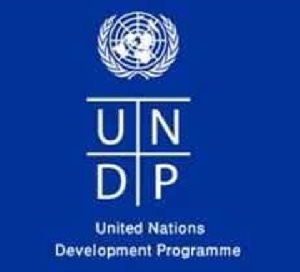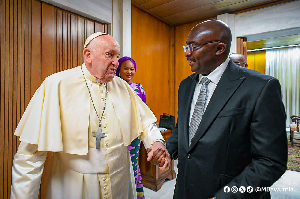General News of Sunday, 10 November 2019
Source: ghananewsagency.org
A future of Africa beyond aid is not far-fetched – UNDP
A future of Africa beyond aid is not far-fetched, Madam Ahunna Eziakonwa, Assistant Secretary General and Director, Regional Bureau for Africa, United Nations Development Programme (UNDP), has said.
She noted that unlike the situation two decades ago, most Sub-Saharan African countries currently depended on remittances and foreign direct investment for the bulk of their financial inflows.
“Since the mid-1990s, aid has fallen as a share of Gross National Income across Africa, from 6.5 per cent in 1994 to 3.0 per cent in 2017,” Madam Eziakonwa said at the opening of the UNDP’s High Level Dialogue in Accra.
She noted that at the same time, African countries were doing much more to enhance domestic resource mobilisation and foreign direct investment.
The two-day meeting on the theme: “Africa’s Money for African Development – A Future Beyond Aid”, was formally opened by President Nana Addo Dankwa Akufo-Addo.
The dialogue brought together leading actors in business, culture, media, arts, technology, innovation, traditional leaders as well as youth, women entrepreneurs, traders and environmentalists.
It aimed to support thought leadership about Africa’s development towards a self-sustaining future, focusing on “Africa Beyond Aid”.
Madam Eziakonwa said as a share of Gross Domestic Product (GDP), domestic revenue mobilization had risen steadily on the continent from 13.1 per cent in 2000 to 18.2 per cent in 2016.
“This is important because as the share of domestic revenue mobilization rises, so does the accountability of leaders to their citizens, critical for fight against inequality,” she stated.
“Market-based mechanisms are also increasingly the norm for financing domestic fiscal gaps. However, economic policies and programmes are still largely tethered to aid-driven frameworks of the past.”
She said in some African countries, there was a dominant dependency mind-set that stifled creativity and a greater sense of personal responsibility and ownership of the development agenda.
She said Africa was already taking steps towards reducing aid dependency, irrevocably, however, there was much more to be done in ensuring that the aid currently collected was used strategically, and Africa’s resources were used optimally.
Madam Eziakonwa said: “Africa’s wealth of natural resources must become true national assets; benefiting all and not just a few”.
“Africa must focus attention on enhancing natural resource governance, rebalancing related value-chains, using smart technology and anchoring natural resource use on principles and practice that are environmentally-sound.”
Madam Eziakonwa noted that stakeholders must ensure that regional and global initiatives adequately supported this move to sustainable and sustained economic development that would deliver prosperity, opportunity and stability for all citizens and should include the Sustainable Development Goals (SDGs), agenda 2030, and the African Union’s Agenda 2063.
She urged African countries to reverse the mentality that views foreign aid as a permanent life support mechanism and explained that aid must be viewed as an enabler; a tool to get Africa to the next level.
Dr Oyo Nyimba Kabamba Iguru Rukidi IV, King of Tooro Kingdom in Uganda, said the inclusion of traditional leaders and cultural institutions, in the drive to achieve a future for Africa beyond aid was both necessary and invaluable.
He said in Africa, monarchs and cultural leaders played a unifying role among people across kingdoms and chiefdoms and for a long time these traditional leaders were looked at as a bonding factor in the socio-economic development of their nations.













